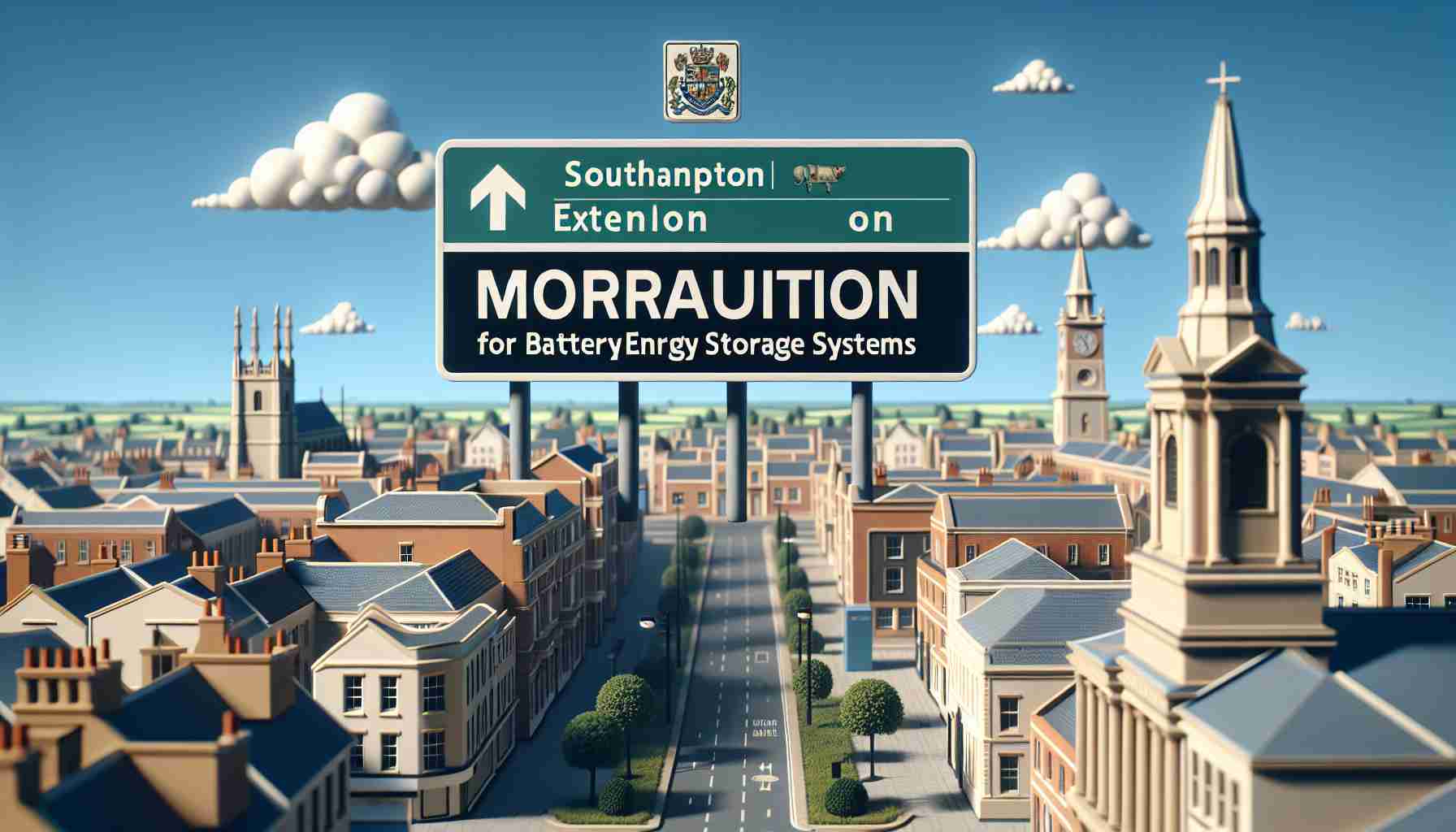In an effort to address safety concerns and reassess codes related to battery energy storage systems, Southampton Town has extended its moratorium on such facilities by six months. The town board initially approved a six-month freeze in August, allowing them time to review the current town code that was adopted in 2021 and may no longer be sufficient.
One of the key reasons for the extension was the fierce backlash from Hampton Bays residents regarding a pending application for a facility in their neighborhood. Concerns were raised about the facility’s proximity to homes and the potential for emergencies to disrupt access to the East End.
To ensure the safety and well-being of its residents, Supervisor Maria Moore announced that code revisions will be implemented to limit the size of these facilities and address the existing safety concerns. In line with this effort, the town board unanimously passed a resolution to hire the consultant firm VHB Inc., at a cost of up to $49,000 for one year. The firm will provide the town with appropriate recommendations, although the final decision on how to proceed will rest with the board.
Battery energy storage systems play a vital role in complementing renewable energy sources like wind and solar by storing excess power for future use. Recognizing this, several other municipalities on Long Island, including Southold and Huntington, have implemented similar reviews to determine how best to regulate these facilities. In addition, the Sachem Central School District recently filed a lawsuit opposing a 10-megawatt battery plant in Holtsville.
Throughout discussions surrounding the moratorium extension, Southampton’s public safety department, fire marshal, and building inspector, along with PSEG Long Island and LIPA, have been actively involved in providing input and expertise.
While some residents urged the board to outright ban these facilities, others supported the extension in order to ensure proper regulations and safety measures are put in place. Attorney Keith Archer, representing the Canal Southampton Battery Storage LLC, pointed to a recent state report that found no harmful toxins at the sites of fires in lithium-battery facilities.
As Southampton Town extends its moratorium on battery energy storage systems, it is striving to strike a balance between renewable energy advancements and the safety of its residents. By revising town codes and seeking input from experts, the town aims to develop regulations that are effective and efficient, ensuring the sustainable growth of clean energy technologies in the future.
Frequently Asked Questions (FAQ) on Southampton Town’s Extension of Moratorium on Battery Energy Storage Systems:
1. Why did Southampton Town extend its moratorium on battery energy storage systems?
– Southampton Town extended the moratorium on battery energy storage systems for an additional six months to address safety concerns and reassess codes related to these facilities. The current town code adopted in 2021 may no longer be sufficient.
2. What prompted the extension of the moratorium?
– The extension was prompted by the fierce backlash from Hampton Bays residents regarding a pending application for a battery facility in their neighborhood. Concerns were raised about the facility’s proximity to homes and the potential for emergencies to disrupt access to the East End.
3. What actions will be taken to ensure safety and address concerns?
– Southampton Town Supervisor Maria Moore announced that code revisions will be implemented to limit the size of battery energy storage facilities and address existing safety concerns. The town board has hired the consultant firm VHB Inc. to provide recommendations on this matter.
4. Which other municipalities on Long Island have implemented similar reviews?
– Southold and Huntington are among the other municipalities on Long Island that have implemented similar reviews to determine the best way to regulate battery energy storage facilities.
5. Is there opposition to battery energy storage systems in other areas?
– Yes, the Sachem Central School District recently filed a lawsuit opposing a 10-megawatt battery plant in Holtsville, showing that opposition to these facilities is not limited to Southampton Town.
6. Who has been involved in the discussions surrounding the moratorium extension?
– Southampton’s public safety department, fire marshal, and building inspector, as well as PSEG Long Island and LIPA, have been actively involved in providing input and expertise during the discussions.
7. What were the arguments presented by those who supported the extension?
– Some residents supported the extension to ensure proper regulations and safety measures are put in place for battery energy storage systems.
8. Was there any evidence provided to counter safety concerns?
– Attorney Keith Archer, representing the Canal Southampton Battery Storage LLC, pointed to a recent state report that found no harmful toxins at the sites of fires in lithium-battery facilities, suggesting that there may not be significant safety risks.
9. What is Southampton Town’s goal in extending the moratorium?
– Southampton Town aims to strike a balance between renewable energy advancements and the safety of its residents. By revising town codes and seeking input from experts, the town aims to develop effective and efficient regulations for the sustainable growth of clean energy technologies in the future.
Definitions:
– Battery Energy Storage Systems: These systems store excess power from renewable energy sources like wind and solar for future use.
– Moratorium: A temporary prohibition or delay on a particular activity or process.
Suggested related links:
– Southampton Town Official Website
– PSEG Long Island
– LIPA (Long Island Power Authority)
The source of the article is from the blog xn--campiahoy-p6a.es
